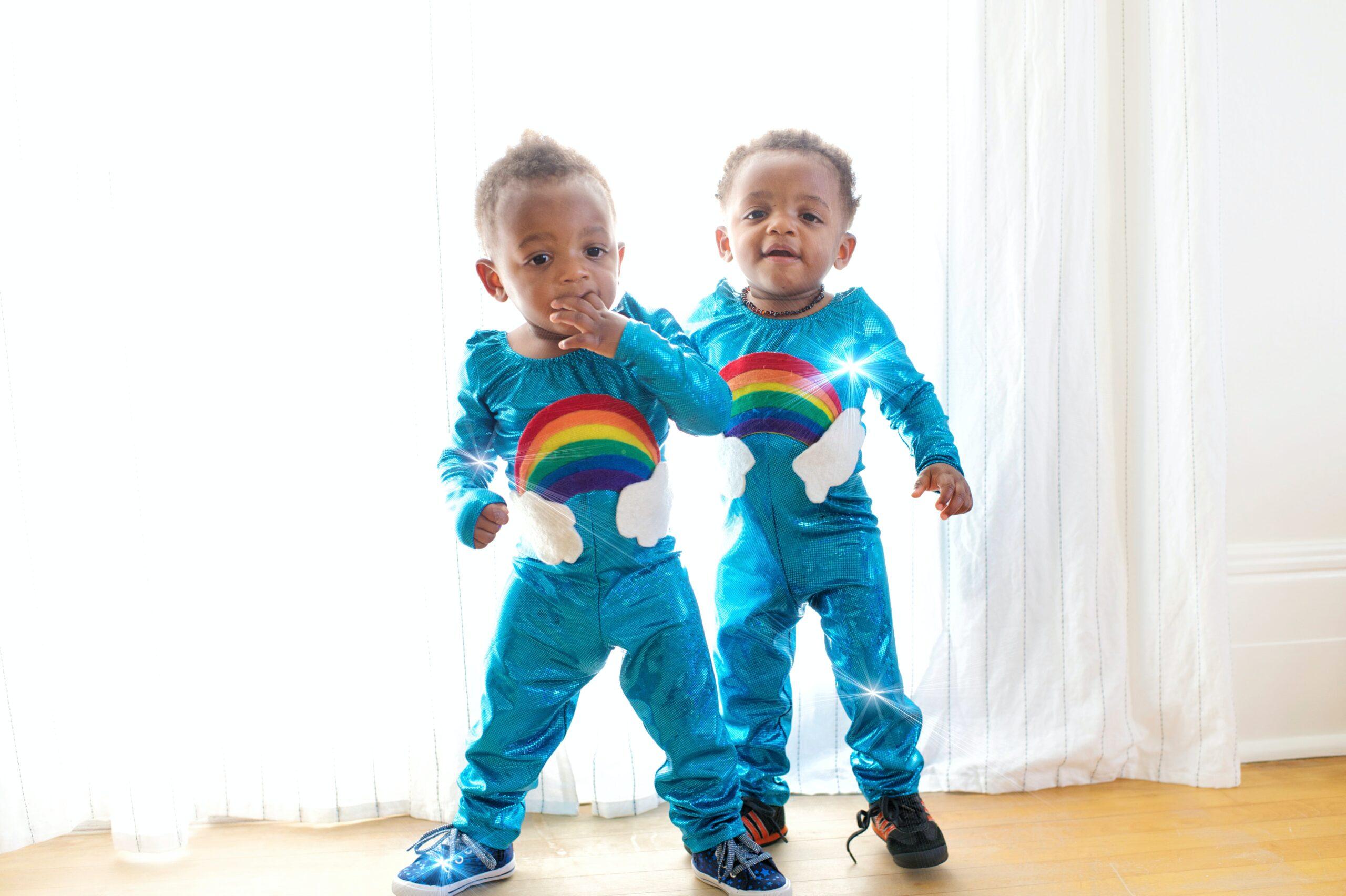When today’s parents were growing up in the 1970s and 1980s, twins were fairly uncommon. Not anymore. The incidence of multiple births has ballooned more than 70 percent in just 25 years, due mainly to the proliferation of fertility treatments that dramatically increase the chance of twinning. Our kids are therefore much more likely to know— or be— a twin.
The emerging commonness of twins, however, doesn’t necessarily make raising them any easier. While the logistics of managing two babies simultaneously have always been tough, recently the economics of doing so have become even more daunting.
Logistics
A parent caring for twins alone is always outnumbered, making some of the most basic elements of tending to a baby, or two, inordinately complex. Consider a few scenarios:
- You are standing at the top of a set of stairs with sleeping infants in a double stroller. How will you descend?
- Two newborn babies awaken hungry at the same time. How will you pick them both up and arrange them for a feeding? Say you feed them both successfully, how will you burp one baby without interrupting the feeding of the other?
- Two babies simultaneously begin crying. How can you comfort and settle both children?
Couples with twins don’t have the option of a laissez-faire approach to parenting. Parents who handle the situation most smoothly seem to be those whose lives have always demonstrated an innate sense of organization and planning. Left-brained accountants and engineers make great twin parents. Artists might want to look into hiring some help.
At the same time, effective parenting of multiples requires a talent for adaptation, a sense of spontaneity and a deep appreciation for the absurd. And quickness to laughter trumps experience changing diapers as a survival skill.
The organization of a family with twins begins well before the twins’ arrival with the scheduling— in writing— of family helpers, neighborhood meal-makers and people responsible for parenting shifts. This scheduling, along with the arranging of two nursery areas (one upstairs, one down, one shared crib in each area) and the stockpiling of supplies, may seem a bit military for such an intimate, special time. The idea, though, is to have systems in place that create more time and space for those dreamy, precious moments of parenting. After all, there will be twice as many of them.
Economics
At the outset, having twins may seem like the ultimate bargain: two for the price of one. By this estimation, the imagined “costs” are pregnancy and labor, which have been halved. While this accounting isn’t exact, the premise is reasonable. Twin pregnancies are tough on the body and can be high risk. But when all goes well, one could truly say there is an economy of scale, so to speak.
Occasionally, this math applies even after the children arrive. For example, if a mother works, then the cumulative time she takes off from her job may be lessened by having two kids at once. Later, babysitters probably won’t double their rates for two children, making the second child a “freebie” of sorts. Moreover, one bedroom is often plenty for twins, particularly same-sex or young ones. Rarely will a pediatrician peering into the infected ear of a toddler (for whom you are paying) refuse you when you ask, “Mind checking her brother’s ear, while you’re at it?” And years of driving kids to the same school and the same play dates will over time accumulate some conveniences and savings.
Offsetting these advantages, are the double-billings for daycare at one end and college at the other. On the East Coast, full-time daycare for two infants can cost over $3,000 a month, which often makes mom’s return to work a money-losing proposition. Additionally, parents of twins may spend over $1,800 annually on diapers for a few years. Unless mom nurses the babies, formula will add another $3,000 in the first year. Likewise, most families count on a few years of financial recovery between children to cope with the expenses of each child’s basic needs.
Frugality with twin babies means understanding which gifts are actually useful and which ones should be exchanged for diapers. It means getting comfortable with hand-me-down clothes, second-hand ice skates and the neighbor’s child’s abandoned viola. Twins rarely inherit possessions from each other in the way that staggered siblings do, and they often require the same size ski boots or one-use sports jacket at the exact same time. Practicality wins the day.
Yet, on the whole, most parents of twins agree that having two at once means far more double the blessings than double the trouble. The most exasperating challenges become meaningless in the face of an ongoing miracle right under your roof.

